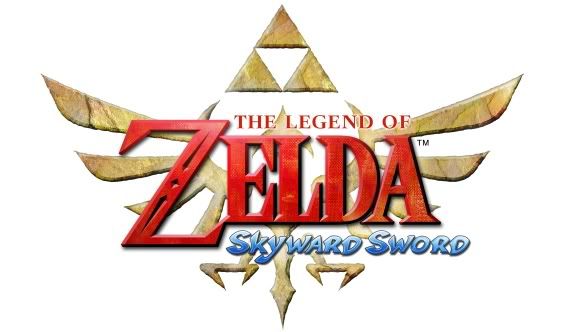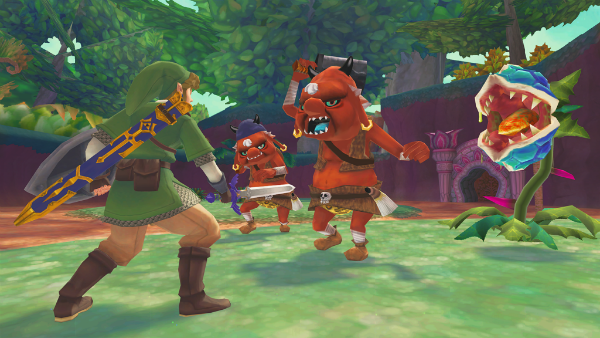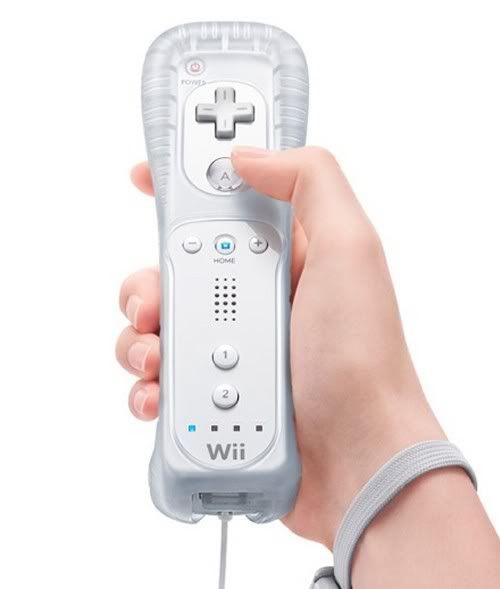
With its recent review in Edge, The Legend of Zelda: Skyward Sword has just achieved nirvana.
While it will be interesting to see other reviews in the coming weeks, Edge’s score raises just as many questions as answers. This could potentially be the Zelda game fans have pined for on the Wii, but with Skyward Sword doing so many things right, why hasn’t this benchmark of quality had a more consistent presence on the console?
For one, the answer is as simple as citing the newness of the technology. The Wii is the first system to bring motion control into the forefront of gaming culture in the same way the original Nintendo Entertainment System (NES) brought a new controller into the mainstream.
Not all of the games on the NES were instant classics, and don’t let your nostalgia fool you into thinking otherwise. We've essentially just been witnessing growing pains with the Wii. It's like that Ira Glass bit about storytelling, when he says, "The first couple of years that you're making stuff, what you're making isn't so good."
Nintendo’s detractors have clearly had a field day with the glut of less-than-stellar software seen on the Wii. Games with poor controls, lazy sound design, and graphics at least a generation old are standard fare.

However, apologists (read: optimists) would be right to point out that the system is doing many things well. Along with unique control opportunities, the Wii offers one of the most robust lineups of titles for younger children — along with titles that cater to the entire family.
While those same games can draw the ire of the hardcore audience, they are filling a vital role by eliminating the barrier to entry and providing interactive entertainment for a previously ignored subset of the population.
Another factor not usually accounted for in discussions about the Wii is the fact that this console generation has been markedly different from any before. Developers suddenly aren’t putting all their eggs into the traditional-gamers basket and are instead making social titles, games for kids, edutainment titles, and bump-n-grind sims.
This is where the harsh reality sets in for longtime fans: It’s not all about us, anymore.
Having lasted longer than any console cycle before, few even know what to make of the current generation. We haven’t seen the types of creative leaps and innovation usually associated with a new console, so an unprecedented sense of stagnation has prevaded the industry.
 None of this is to say that we haven't seen creative and amazing games for the Wii. Epic Mickey created a deceptively sinister world well outside the standard Wii fare, and the Super Mario Galaxy titles bravely advanced the series as if no Mario title existed past Super Mario 64.
None of this is to say that we haven't seen creative and amazing games for the Wii. Epic Mickey created a deceptively sinister world well outside the standard Wii fare, and the Super Mario Galaxy titles bravely advanced the series as if no Mario title existed past Super Mario 64.
Then we have Skyward Sword, this year’s wild card arriving surreptitiously amidst the pomp and circumstance of several other high-profile releases. But keeping the release on-schedule and so close to juggernauts like Uncharted 3 and Skyrim is a clear testament to Nintendo’s confidence in the title.
Fueling the anticipation are the mysteries still surrounding the game. Will Syward Sword really have 50 to 100 hours of play? Will the purported role-playing-game elements be as robust as we’re lead to believe? Will you wake up in a village (or perhaps a nicely hallowed tree) confused and alone?
Edge seems to think that all the Hyrulean stars have aligned for Skyward Sword, and there’s certainly something to be said for going out on top. It might boil down to nothing more than an extremely well-polished game, but if it really will serve as the Wii’s swan song then history may look kindly on the system after all.
Note: Edge's review gave Skyward Sword a "10/10" rating. I would provide a link (not a pun) for the article, but Edge inadvertently broke online embargo and pulled the review. It will be back online on November 11.
VentureBeat's mission is to be a digital town square for technical decision-makers to gain knowledge about transformative enterprise technology and transact. Learn More
